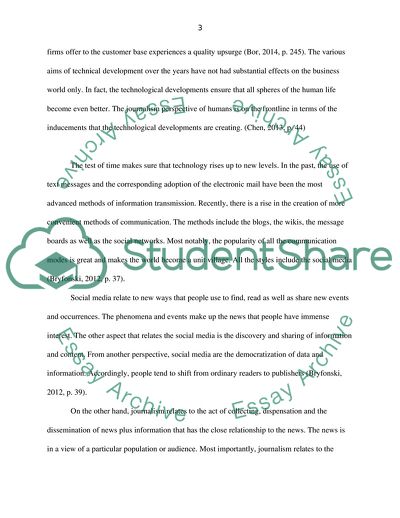Cite this document
(Impact of Social Media on the Practice of Journalism Report Example | Topics and Well Written Essays - 2500 words, n.d.)
Impact of Social Media on the Practice of Journalism Report Example | Topics and Well Written Essays - 2500 words. https://studentshare.org/journalism-communication/1854957-critical-journalism
Impact of Social Media on the Practice of Journalism Report Example | Topics and Well Written Essays - 2500 words. https://studentshare.org/journalism-communication/1854957-critical-journalism
(Impact of Social Media on the Practice of Journalism Report Example | Topics and Well Written Essays - 2500 Words)
Impact of Social Media on the Practice of Journalism Report Example | Topics and Well Written Essays - 2500 Words. https://studentshare.org/journalism-communication/1854957-critical-journalism.
Impact of Social Media on the Practice of Journalism Report Example | Topics and Well Written Essays - 2500 Words. https://studentshare.org/journalism-communication/1854957-critical-journalism.
“Impact of Social Media on the Practice of Journalism Report Example | Topics and Well Written Essays - 2500 Words”. https://studentshare.org/journalism-communication/1854957-critical-journalism.


